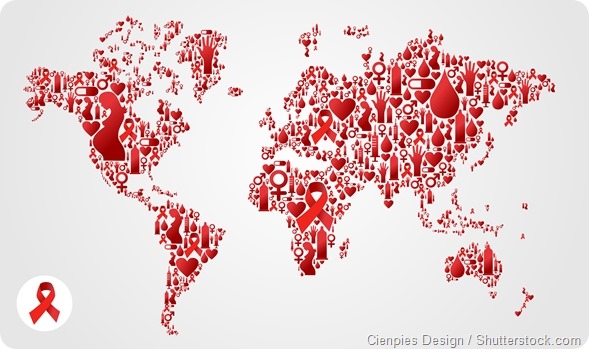The first known case of human immunodeficiency virus (HIV) was in 1959 in the Congo. By the 1980s the virus was spreading rapidly, with cases reported across the Americas and Europe. HIV has now infected over 75 million people and 40 million have died as a result of AIDS (acquired immunodeficiency syndrome, which develops as a consequence of HIV infection).
Research, published today, shows that the HIV pandemic almost certainly began its global spread in the 1920s in Kinshasa in the Democratic Republic of Congo.

Scientists at Oxford University, led by Professor Oliver Pybus, conducted a sophisticated analysis of hundreds of genetic sequences of HIV from different time points and locations. The genetic analysis was combined with historical data to create a picture of the spread of the virus and the environment in which it was spreading.
Professor Pybus explained:
For the first time, we have analysed all the available evidence using the latest phylogeographic techniques, which enable us to statistically estimate where a virus comes from. This means we can say with a high degree of certainty where and when the HIV pandemic originated.
Various strains of HIV have been transmitted from primates and apes to humans, but the current human pandemic involves only the strain known as HIV-1 Group M. The other strains either died out or remained at a low level. In contrast, group M underwent an epidemiological transition and outpaced regional population growth.
The genetic data showed that HIV rapidly spread across the Democratic Republic of Congo — a country the size of Western Europe — facilitated by vast numbers of people travelling long distances along railways and waterways. Social changes also contributed to the widespread transfer of HIV; sex workers had an expanding clientele and the (unsafe) use of hypodermic needles increased.
The paper concludes that the HIV pandemic arose as a consequence of a 'perfect storm' of factors, including urban growth, strong railway links during Belgian colonial rule, and changes to the sex trade and public health initiatives, combining to facilitate the transmission of HIV out of Kinshasa and ultimately across the globe.
Source:
Faria NR, et al. The early spread and epidemic ignition of HIV-1 in human populations. Science 2014;346:56-61. Available at: http://www.sciencemag.org/content/346/6205/56